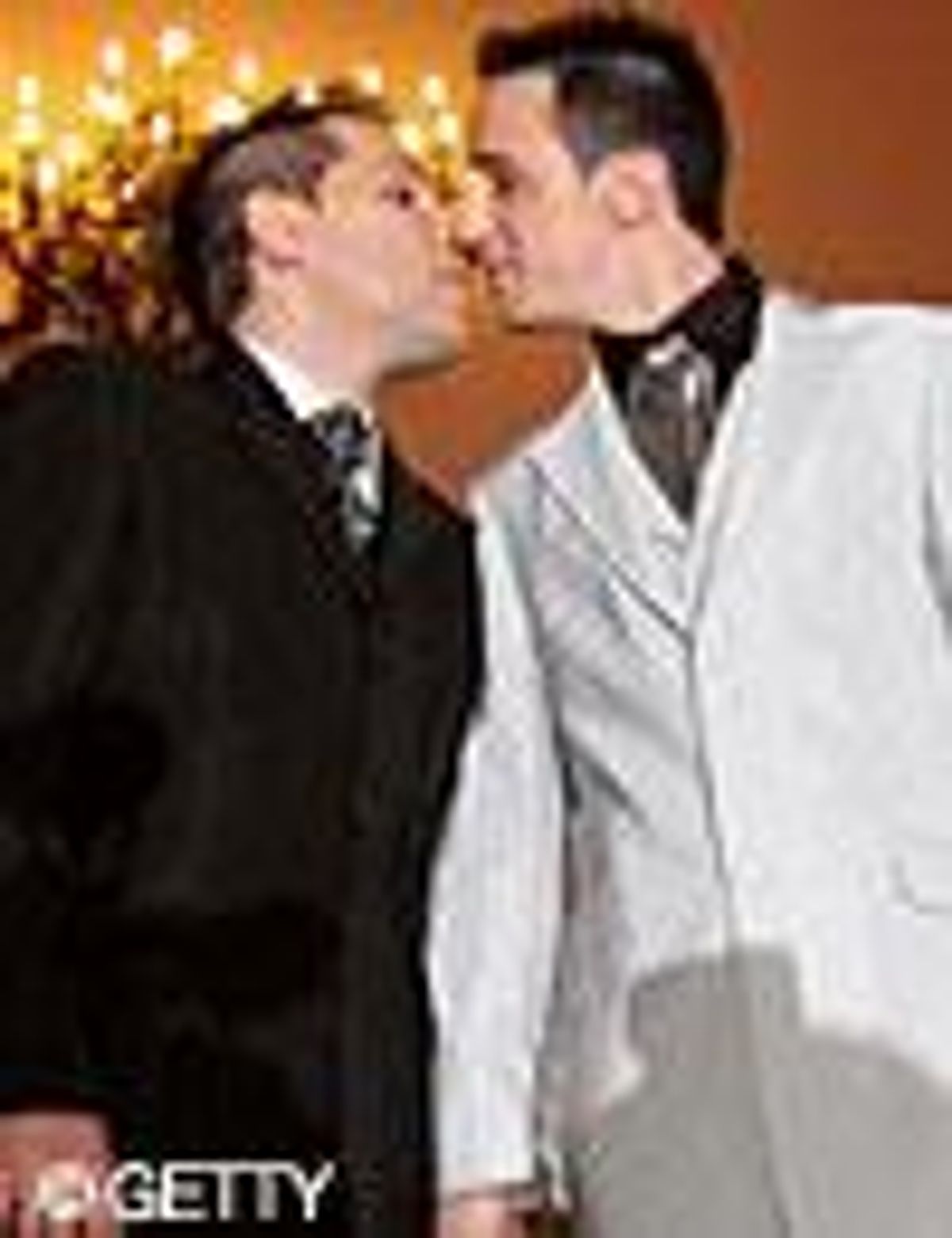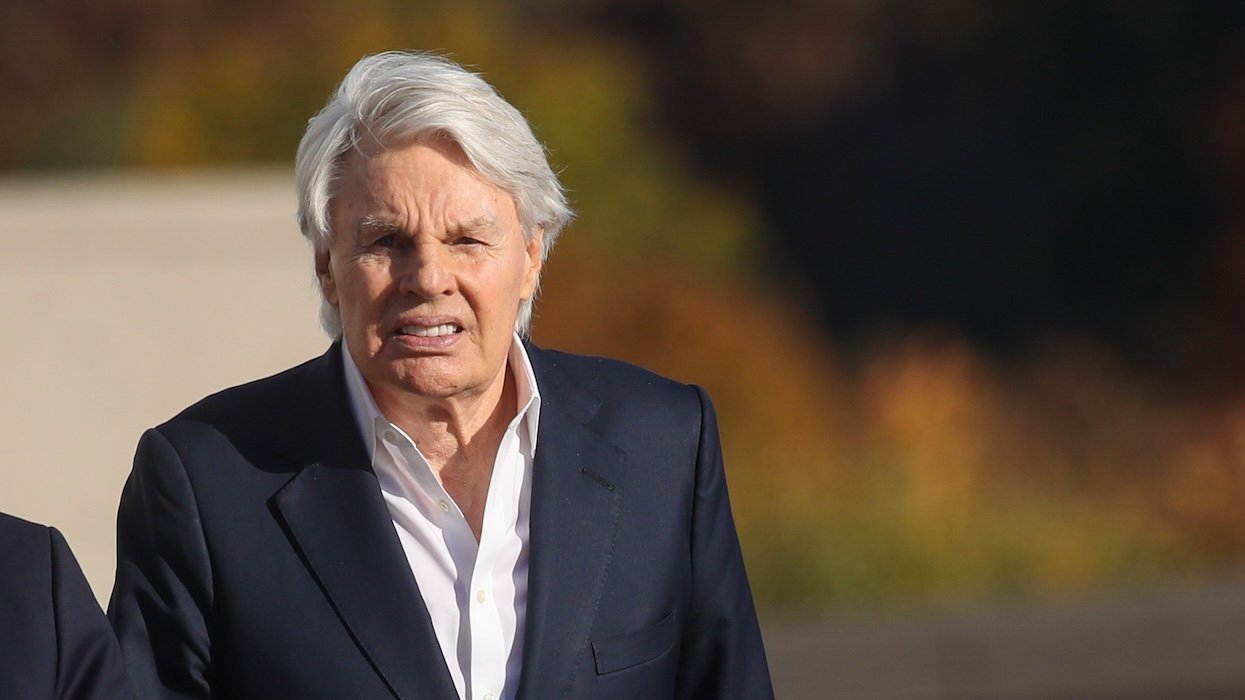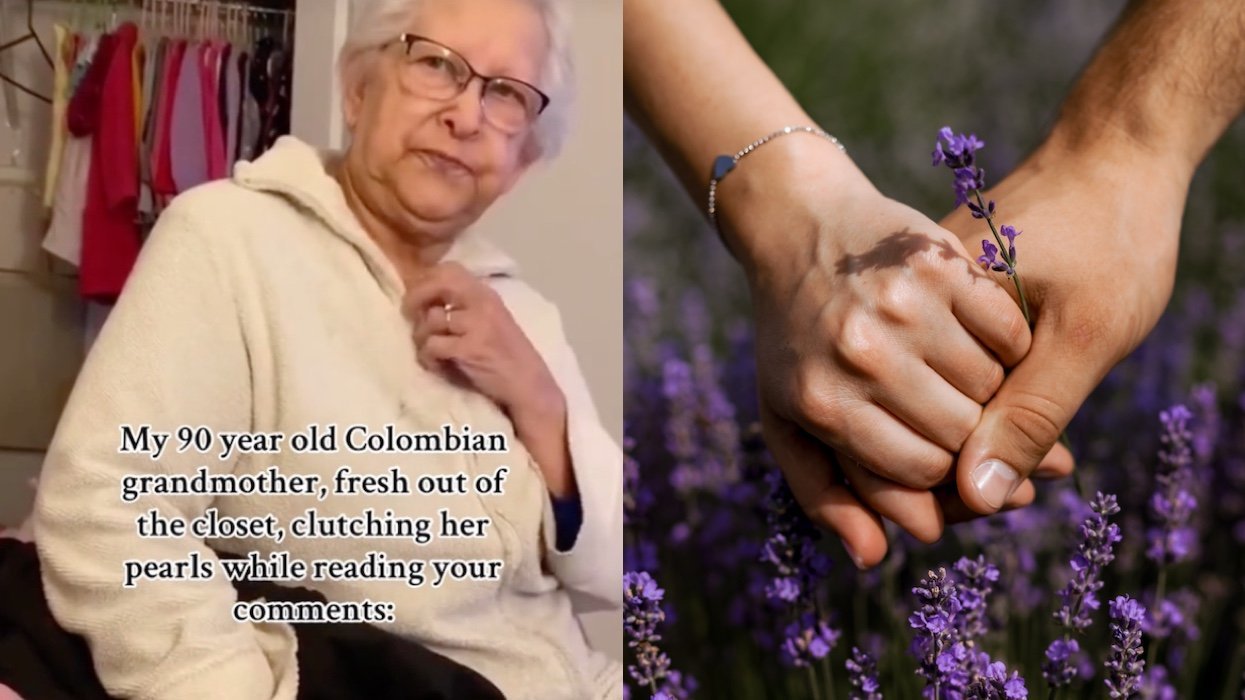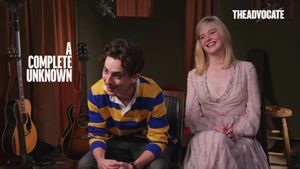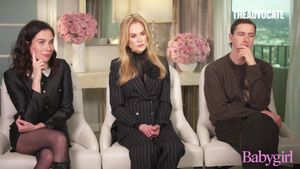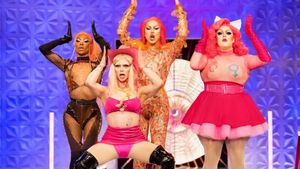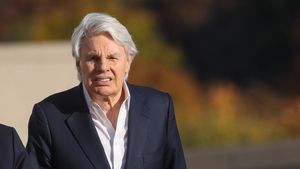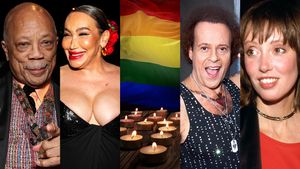Last fall a
Catholic priest invited me to my very first same-sex
wedding. I was thrilled. The wedding was between an
Episcopal deacon and his long-term boyfriend. The
rites were Christian with the priest presiding. Sound
unorthodox? What if I told you the priest was openly gay?
And sexually active? And that he identifies as a bear?
!Hola y bienvenidos! to gay Spain, where the
citizens have been struggling to reconcile their
country's Christian underpinnings with a
liberal attitude toward gay rights ever since same-sex
marriage became legal over a year ago. On June 30,
2005, you were probably as surprised as I was when the
Spanish government under President Jose Luis
Rodriguez Zapatero, a Socialist, granted equal
marriage rights to gays. After all, the country has a
long Roman Catholic tradition, with 80% of its people
at least nominally a Friend of Benedict, and homosexuality
itself became legal only in 1978. And hello, Spanish
Inquisition, anyone?
Yet somehow Spain
beat the United States to the altar and allowed all its
citizens to marry--which as of late 2006 included more
than 4,000 gay couples. Nowadays marriage equality has
dropped from the headlines (two thirds of voters
supported it anyway). In the capital city of Madrid, one
in 10 marriages are between members of the same sex. The
city's mayor, a member of the right-wing
People's Party, even performed the nuptials of
one of his gay deputies.
Confusing? I
certainly thought so. So in September I did what any young
gay journalist with a temporary lease (and no romantic
prospects) would do: I moved to Spain to figure it
out.
On the surface
Spain is exactly the country you expect it to be. The
people have a strong cultural bond with Catholicism, and
their festivals explode with as much color and vigor
as ever. During Holy Week, men still parade down the
streets in brilliantly colored robes and those tall
slightly creepy fabric hoods. On feast days, spectacularly
bejeweled icons of the Virgin Mary are carried through
the streets, and in Europe, Spain's
celebrations before Lent are surpassed only by
Italy's. During the Christmas season, as I am
writing this story, Madrid's wide boulevards
have turned into festivals of lights, mangers, and crushes
of humanity.
But I learned
that underneath this facade lies a much more complicated
relationship between religion, politics, and society. All
the color and ceremony is what some call
"Catholicism of rhythm." That is, people
celebrate because they always have, not out of a religious
obligation. Since marriage between members of the same
sex was legalized, Pope Benedict XVI has railed
repeatedly against the Spanish government. Same-sex
"pseudomarriage," based on "a love that
is weak," is the "greatest threat
ever" that the church has faced, he has said on
various occasions. But his remarks fall largely on
deaf ears. Spaniards remember all too well what
happened the last time they allowed the Catholic Church
to order them around.
Explaining how a
mostly Christian nation was one of the first to bring
gays into the family fold, many Spaniards gave me a history
lesson about dictator Francisco Franco. He died over
30 years ago, but he remains a powerful, if silent,
influence on the country today.
Spain festered
under Franco, a fascist and friend to Hitler, for 36
years. After the brutal Spanish Civil War in the 1930s, he
pulled the country together by force and intimidation.
He called his system of government "National
Catholicism" and repressed any behavior or actions
that he and the church deemed aberrant, including a free
press, sexual freedom, abortion, and divorce. It was a
time of great difficulty for all but the most
conservative citizens, and many injustices were inflicted on
the helpless populace as the church stood by, aloof.
Then when Franco
died in 1975 and King Juan Carlos ascended to power,
transforming the country into a democracy, the writers of
Spain's constitution went to great lengths to
keep the church out. "Religion played such an
important role in the Civil War and dictatorship,"
says Kerman Calvo, a Basque sexuality and society
expert who has written extensively on the subject,
that "people are hyperaware of the dangers of
having a politicized church."
"The
church is the principal homophobic force in Spain, and they
allied with [Franco]. They offended everyone,"
says Jordi Petit, a grizzled gay rights activist in
Barcelona who began fighting for equality in the
Catalonia region over 30 years ago. "They are held to
account by the public."
Accordingly,
Spaniards are extremely hesitant to vote along religious
lines. Poll results frequently show that more people are in
favor of same-sex marriage, for example, than think
that being gay is natural--meaning that just
because they may hear antigay views in church (if they
even go), it doesn't mean they are going to act on
them to deny a fellow citizen rights. In fact, if the
church takes a strong stance against something, people
are actually more likely to question that position.
In contrast, the
situation in the United States, with evangelical voters
holding so much power, is laughable to Spaniards. So too is
the way George Bush often says, "God bless you,
and God bless America." "What is he, a
priest?" my Spanish roommate said to me with a laugh
one day. I would have laughed with him if I
didn't know it was that exact blur between
church and state that causes so many gay people to suffer in
the States.
Father Jose
Mantero is the gay priest who invited me to his
friend's wedding, one in a long chain of queer
nuptials he's performed since he came out in
2002 on the cover of Zero, Spain's monthly gay
glossy. A burly figure with tiny spectacles and big
arms, Mantero was good enough to take me out for tea
and scotch in Chueca, Madrid's answer to Chelsea,
shortly after I arrived in September. He was full of warmth,
and as we talked he quoted Scripture like Pat
Robertson. It was a somewhat jarring effect.
"It's been a year, and everything's
normal," he told me.
From the looks of
it, everything does seem normal, so much so that a
friend of mine recently attended a leather wedding, where
all the guests were compelled to wear some sort of
hide. It was outrageous and was meant in part to
scandalize. But nobody was willing to be excluded from the
ceremony, not even the grandmothers. They wore mink.
You have to know
some things about the average Spanish family to really
understand that logic. In the United States we talk a lot
about how important family life is, but in Spain they
talk a lot less--and they do a lot more.
It's common for young people to live with their
parents well into their 30s, even in big cities like
Madrid. Many of my new Spanish friends use the
three-hour midday siestas during the week as
opportunities to go home and have their mother cook a
giant--doubtlessly pork-laden--Spanish
lunch. The average age of marriage is several years
older for both men and women than it is in the United
States, and the Spanish divorce rate is 17%, compared
to just under 50% in the States.
It took me a
while to really grasp this, but it is precisely because
family is so important to the Spanish that they do
accept gays getting married. "If your mom is
conservative and you are gay, you are her son,"
says Emilio de Benito, a writer for El Pais, the
country's left-leaning newspaper.
"That's the most important thing."
Of course! If you
love your family and you think the institution of
marriage is important, you should want everyone to be able
to marry. But as an American, I have been trained so
that every time someone says "family
values," I hear "antigay." Relearning
that the two don't have to go hand in
hand--and that family values could indeed be
gay-affirmative--was at once liberating and extremely
painful.
But the situation
in Spain is by no means perfect yet. In September a
restaurateur made headlines by refusing to host a gay
couple's wedding reception in Madrid. The
notoriously slow-moving Constitutional Tribunal is
currently pondering a protest by the People's Party
against the use of the word "marriage"
(although, after seeing the popular support for
marriage equality, the party downgraded its objection to
just the name, as it now officially supports equal
rights and benefits for same-sex couples).
And for many who
live in small towns, acceptance is not universal. Angel,
27, married in April 2006. As we sat down for coffee in his
favorite shop in Madrid, he told me about his intimate
wedding in a small town outside of the city. He
didn't marry in his hometown because his parents
still don't know he's gay. "I am
so scared to tell them because they might
suffer," he told me. His parents still live in the
same tiny town of 600. "People in town might
point and say, 'Those are the parents of the
gay.' "
Angel's
prewedding nerves caused him to gain weight--almost 40
pounds. "I can't look at the wedding
pictures," he said. Although his parents
didn't attend, his sisters and some friends
came and scraped together a few wedding gifts for the
couple. Angel and his husband, Alex, now have an
apartment together, but the fact that their parents can
never come to visit weighs heavily on their minds.
Near the end of
my stay in Spain, I sat down with Pedro Zerolo, the
secretary of Social Movements and Relations With NGOs, a
ministry post. Zerolo is a former president of
Spain's State Federation of Gay, Lesbian, and
Transgendered Groups and is widely credited with making the
marriage equality law possible. After President
Zapatero and the Socialist Party added same-sex
marriage to their campaign platform, they worked closely
with Zerolo and the federation to execute the plan. When it
was time to write the new law, Zerolo presented them
with language he had already prepared.
I met with him in
his expansive office in the party headquarters in
Madrid, and we chatted for well over an hour. He was full of
political platitudes about "worlds of the
rainbow" and how "we won a victory for
humanity." Whenever I had conversations like these, I
couldn't help but think that in the end it
wasn't the activists that made the law possible
in Spain--it was the straight people who listened, who
allowed themselves to be educated, and who ignored
religious and social prejudices. With a large voting
majority, passing the law was easy.
I have always
been an advocate for marriage equality, which in the United
States often means I am caught in complicated logical and
theoretical debates. But in Spain it's so
simple. Spaniards care immensely about the tradition
of family, so anyone who wants to be a part of it can be.
The separation of church and state is written into
their constitution, so they keep them separate. Equal
rights are a founding principle of their democracy, so
they give them out to everybody. Seeing it all laid out so
plainly makes me feel like a crazy person. U.S. society has
the same basis, yet look how dismal our prospects for
marriage equality are at the moment.
It makes me
wonder what we've achieved as a community if U.S. gay
men and women can't explain something so simple
to their straight counterparts. So I asked Zerolo
whether he had advice for queer activists in my home
country. I think about his response often.
"We
learned to fight from Stonewall," he said. "I
grew up reading Audre Lorde and Walt Whitman. My best
teachers were those great, brave leaders in the
U.S." He shook his head and smiled.
"It's so funny you asked me what I would
teach American activists. You can't teach the people
who taught you everything you know."
